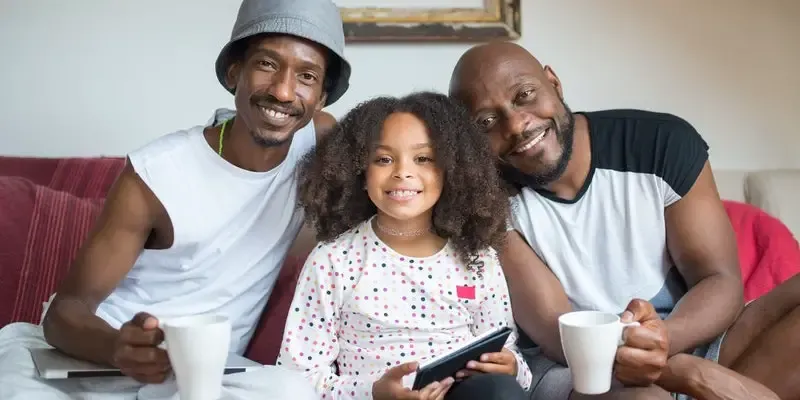A Crucial Perspective

Summary: In this introductory section, we will explore the importance of cultural sensitivity in the context of family therapy. We will address fundamental questions surrounding family therapy, its potential to help with family trauma and breaking negative family cycles, the role of therapists, its overall effectiveness, and evidence-based clinical approaches.
Family therapy is a dynamic and powerful tool that can lead to transformative changes within families, helping them navigate challenges, heal wounds, and build stronger connections. However, to fully appreciate the impact of family therapy, we must first understand its fundamental principles and the crucial role that cultural sensitivity and evidence-based clinical approaches play in this process.
Understanding Family Therapy
Family therapy, often referred to as family counseling or systemic therapy, is a therapeutic approach that focuses on improving communication, resolving conflicts, and enhancing relationships within families. Unlike individual therapy, which primarily addresses the needs of one person, family therapy acknowledges that issues within a family are interconnected. Therefore, it aims to create a safe space for all family members to explore their thoughts, feelings, and experiences. Which often times presents a unique challenge.
Family therapy recognizes that every family is unique, with its own history, traditions, and dynamics. It understands that there is no one-size-fits-all solution to family challenges, making it essential for therapists to approach each family with an open heart and a culturally sensitive mindset. Promoting an environment of openness and honesty. Where even though some hurtful things maybe said it is done so in a controlled environment where every one has an opportunity to feel seen and heard.
The Impact of Cultural Sensitivity
Cultural sensitivity in family therapy is not merely a consideration; it is a fundamental cornerstone. Families come from diverse cultural backgrounds, and their beliefs, values, and norms may significantly influence their interactions and perspectives. This is also evident in the roles and expected behaviors. Special consideration has to be made as it relates to the roles of the elders in the family system and culture and responsibility as it relates to birth order. As a result, therapists must approach each family with cultural humility and respect, recognizing the importance of diversity in the therapeutic process.
Cultural sensitivity involves actively listening to and learning from the family’s unique cultural experiences. It requires therapists to acknowledge the impact of systemic issues, such as racism, discrimination, sexism, and even sexual identity has on the family’s well-being. By doing so, therapists can create a more inclusive and supportive therapeutic environment where every family member feels heard and validated.

Addressing Family Trauma
One of the pivotal roles of family therapy is addressing family trauma. This can be a delicate issue, as it is always an issue of some members being open to the change and other’s being resistant. Trauma within a family can stem from various sources, including historical events, personal experiences, or even intergenerational patterns of behavior. When left unaddressed, trauma can have a profound and lasting impact on family dynamics, contributing to conflicts and perpetuating negative cycles.
Family therapy offers a safe and structured space for families to explore their collective trauma and its influence on their relationships. Therapists, trained in trauma-informed care, can guide families through the process of healing and reconciliation, helping them find resilience and strength in their shared experiences.
Breaking Negative Family Cycles
Families often find themselves trapped in negative patterns and cycles of behavior that hinder their growth and harmony. These patterns may include communication challenges, conflict avoidance, or unhealthy power dynamics. Family therapy aims to break these generational curses, by providing families with the tools and insights needed to create positive change.
Through evidence-based clinical approaches, therapists can identify the root causes of these negative patterns and work collaboratively with families to replace them with healthier alternatives. These approaches are grounded in research and clinical expertise, ensuring that therapeutic interventions are effective and tailored to each family’s unique needs.

In family therapy, the therapist assumes a multifaceted role. They act as a guide, facilitator, mediator, and collaborator. Importantly, therapists create a safe and non-judgmental space where family members can express themselves honestly. They promote open communication, active listening, and empathy among family members, fostering an environment where healing and growth can occur.
Therapists can use many effective evidence-based clinical approaches in family counseling to promote positive change within families. We also provide practical advice for individuals seeking family therapy, emphasizing the significance of finding a culturally sensitive therapist who can align with their unique background and needs. Family therapy can also occur in what therapists call “push-in” sessions. This is where we work with clients individually to identify concerns and address the needs they want to work with a family member to address in a controlled and safe environment. And after several individual therapy sessions to identify goals, we then add additional family members one at a time. This is done to control the therapeutic environment.
My Recommendation for Success
Although family therapy can be highly effective with a skilled, trained practitioner, many factors can affect the efficacy of the treatment outcome. It works best when each family member is in individual therapy, willing and open to the change process, and committed to healing the family. Each participant has to be open to at least taking on the other family member’s perspective, even if they aren’t ready to acknowledge any wrongdoing on their behalf. Each member of the family must work diligently to hear each other out and validate each other’s experience, as difficult as that may be. And yes, be open to taking personal responsibility and change both negative patterns of behavior and negative patterns of communication. While this is challenging work for the clients and the therapists. When the healing happens, it is gratifying for all involved.
You can read more about Evidence-Based Clinical Approaches” to take a closer look at these approaches and how they contribute to successful family therapy outcomes, along with some examples of how they are applied in therapy.

Conclusion
Summary: In this concluding section, we recap the key takeaways from this article, emphasizing the significance of cultural sensitivity and evidence-based clinical approaches in family therapy. We highlight that finding the right therapist who aligns with your family’s unique background and needs is essential for a successful therapeutic journey.
Family therapy is a wonderful and transformative process that can heal wounds, strengthen connections, and foster positive change within families. As we conclude our exploration of this crucial perspective, here are the key takeaways:
- Cultural Sensitivity Matters: Cultural sensitivity is not an option but a necessity in family therapy. It acknowledges and respects the diversity of families, ensuring that therapy aligns with the values, beliefs, and identities of each family member.
- Evidence-Based Clinical Approaches are Effective: Evidence-based clinical approaches in family therapy have been proven to be effective in addressing family challenges. These approaches are not one-size-fits-all but are tailored to the unique needs of each family.
- The Therapist’s Role is Vital: Therapists play a multifaceted role in family therapy, creating a safe and supportive environment for family members to express themselves, heal, and grow.
- Finding the Right Therapist is Critical: Selecting a culturally sensitive therapist who aligns with your family’s unique background and needs is a crucial step. Take the time to research, interview, and assess potential therapists to find the right fit.
Family therapy holds the potential to break negative cycles, address family trauma, and create harmonious relationships. It is a journey of healing and growth, and with the right therapist and approach, families can achieve transformative outcomes.
Remember that the path to healing begins with understanding and seeking the support you need. By prioritizing cultural sensitivity and evidence-based clinical approaches, you can embark on a family therapy journey that empowers your family to thrive.
If you’re ready to explore family therapy, take the first step in finding the right therapist who can guide your family towards a brighter, more connected future.
Thank you for joining us on this journey through the world of family therapy, where cultural sensitivity and evidence-based practices are the guiding lights towards healing and growth.



